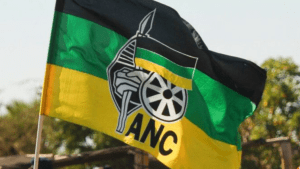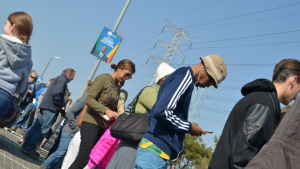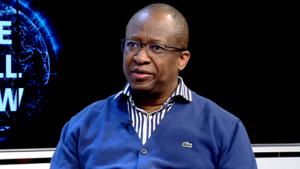Poverty is a complex societal issue presenting itself along racial, social and political lines. Essentially poverty is characterised by a person’s inability to meet their basic needs necessary for survival.
At the end of March 2019, South Africa’s quarterly poverty statistics were released. The aim of the statistics are to characterise the nature of poverty in South Africa. From those statistics, 64.2% of Black South Africans lived in poverty, followed by the Coloured population at 41, 3%, then the Indian/Asian population falling to 5.9% and then the White poverty levels at 1%. What these figures indicate is that poverty in South Africa disproportionately affects black South Africans, who also make up the majority of the population.
According to these statics, 30.4 million out of 56 million people in South Africa officially live in poverty. Additionally, 49.2% of this poor population is black African women. Furthermore, poverty in the country is concentrated in previously disadvantaged areas, or former homelands. Finally and most importantly, poverty is on the rise in South Africa.
Theories of democratic consolidation have long contended that for a democracy to thrive, there should be a strong middle class. Within this tradition, it is expected that the middle class, who have the resources, time and education, can contribute to hold the state accountable. As a result, the post-democratic state of South Africa has focused on class formation through programmes such as BEE and Affirmative Action policies.
However, the growing levels of poverty and inequality indicate a failure to create a stable middle class. Instead the bulk of this middle class is a labour force composed of vulnerable employees who, should they lose their source of income, will slip right back into poverty.
It is fair to say the governing party’s class project has not yielded the necessary outcomes to entrench democracy. From current statistics, the poor in South Africa far outnumber the middle class. Therefore, South African political parties contesting the 2019 elections should have a keen interest in addressing the scourge of poverty.
Political leaders cannot continue to bury their heads in the soil and pretend that the pot of inequality is not close to boiling over. If the protests in Alexandra are an indication, the poor and their strife can no longer be dismissed.
Since 1994, there has been enduring assumption regarding election results in South Africa. The assumption is that electoral outcomes will mirror the racial make-up of the country and as a result, the ANC will continue to be the governing party. While this thesis held water for the first few elections, the support for the ANC has been declining, with the party performing at its worst during the 2016 elections.
The South African political system holds many contradictions. It is a one party dominant state within a vibrant, competitive electoral system. The richest 1% of the country hold more than 70% of the wealth of the country. The country also hosts a dual economy; on the one end, is a small high skilled high productivity economy and on the other, a much larger yet low productivity economy. The results of these contradictions are most glaring in their societal manifestations. The socio-economic conditions shape political participation and outcomes.
South African voters no longer place history and legacy at their center of their voting decisions. People are now placing their socio-economic needs at the helm of party choice. Voters are now interested in who will represent their interests, whose politics address their concerns the most and most importantly, who do they feel is listening to them.
Seemingly, opposition parties in previous elections displayed certain levels of complacency. They have resigned themselves to the understanding that the ANC will continue to win elections and their only play as political parties is to represent minority interests so that they can enjoy representation in the legislature. They have never shaped themselves as real alternatives to the governing party, which has been a grave mistake on their part.
This approach has maintained the electoral integrity of the elections in South Africa, but it has not benefited the majority of South Africans, who remain paralysed by poverty. As previously mentioned, political parties competing in the 2019 elections should have strategies in place to woo voters, especially the poor. They should have strategies to grow the economy and alleviate poverty and not just pay lip service to changing the lives of the majority of South Africans.
Naledi Modise is a Junior Lecturer in political studies and International Relations at North West University, Mafeking campus, She is also OSFSA Democracy Commemorative Fellow- Democracy Works Foundation.






